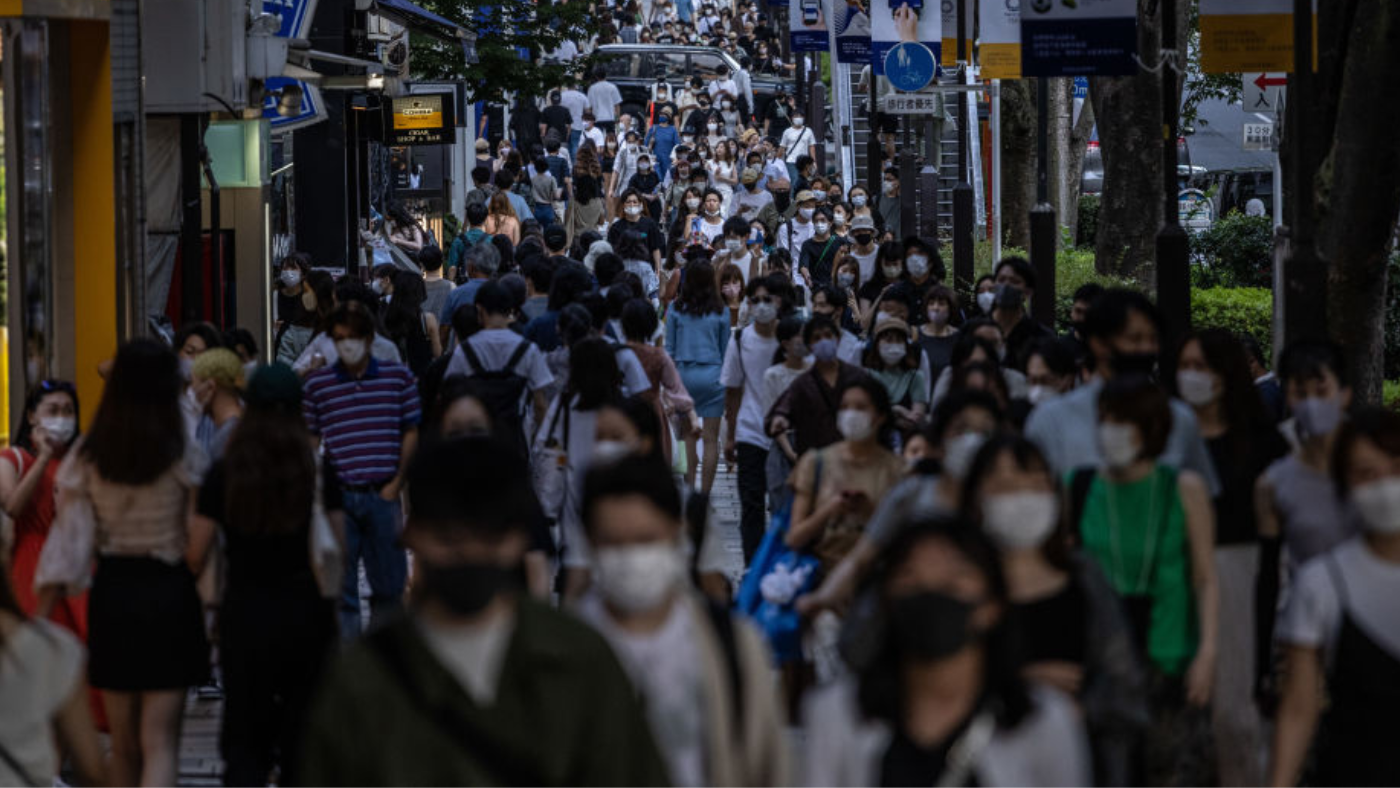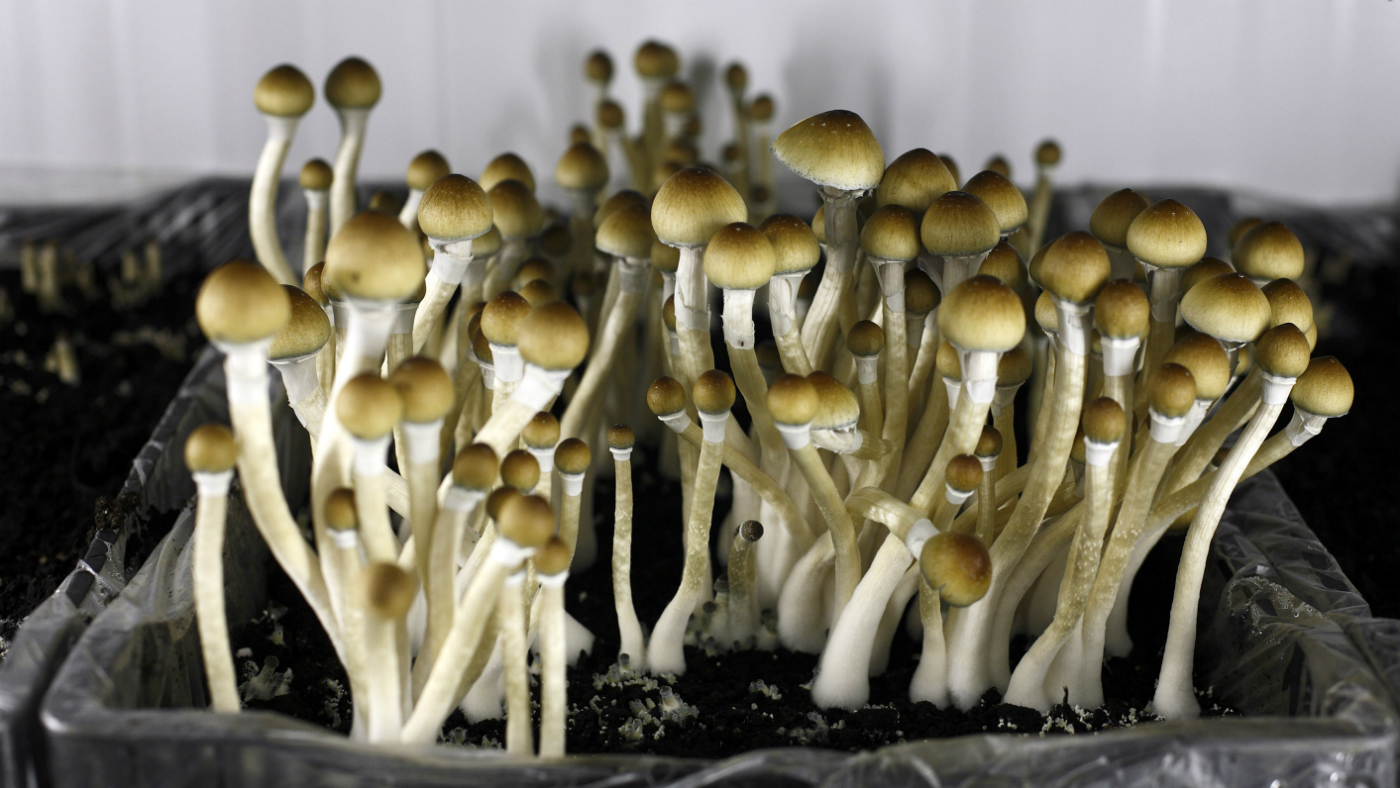The Japanese rice crisis
Japan's staple food is in short supply and everything from bad harvests to rising tourist numbers is being blamed

"Rice is everything" in Japan, according to Firstpost, but consumers are facing a crisis: the country is running out of supplies and the price is rocketing.
Extreme shortages throughout the country have led to the Japanese government auctioning off its emergency rice stockpile for the first time. The debut auction in March saw 142,000 tons of grain up for offer at a cost of 21,217 yen (about £113) per 60kg, reported Business Insider.
The move came after prices nearly doubled year-on-year and stores began limiting the number of bags shoppers could buy.
Subscribe to The Week
Escape your echo chamber. Get the facts behind the news, plus analysis from multiple perspectives.

Sign up for The Week's Free Newsletters
From our morning news briefing to a weekly Good News Newsletter, get the best of The Week delivered directly to your inbox.
From our morning news briefing to a weekly Good News Newsletter, get the best of The Week delivered directly to your inbox.
Long-term decline in rice farms
Japan's rice production is a "complex system", said First Post, with limits placed on how much can be produced in order to keep prices high and support farmers. In addition, the distribution method involves several steps: the farmers sell to collecting agents, who pass it on to wholesalers, who supply shops and restaurants. Any "slight hiccup" in this chain can cause major problems.
Today's crisis has its roots in 2023, added the site, when extreme heat hit that year's rice harvest, which reduced the amount available for distribution. Shortages in the supermarkets began last summer, exacerbated by warnings about a possible major earthquake along the Nankai Trough that led shoppers to stock up in fear.
As a result, prices shot up to around 23,350 yen (£124) per 60kg bag – a 55% increase on the year before – and have continued to rocket as customers bulk buy in the expectation of further increases. At the beginning of March 2025, a 5kg bag of rice cost an average of 4,077 yen (£22).
Adding to the situation is the long-term decline in Japan's traditional small-scale family rice farms. Japan's network of agricultural cooperatives, JA, which plays a key role in rice production and distribution, says the number of rice-farming households has "steadily shrunk" from about 4.66 million in 1970 to roughly 700,000 in 2020, reported The Japan Times.
"Parents tell their children, 'You're better off becoming an office worker,'" farmer Genki Sakurai told the newspaper.
Conspiracy theories and greedy tourists
Distributors and retailers are also accused of holding back supplies. Around 180,000 tons more rice was collected in the 2024 harvest compared to the previous year, but in December, the distributors said they were down by 210,000 tons. Government agencies are unable to explain the discrepancy, leading to conspiracy theories that speculators are hoarding rice to make bigger profits.
"There is definitely rice," farming minister Taku Eto said in February. "If you look at distribution as a whole, there's a quantity that's been stacked away and hidden somewhere, so that is causing a shortage."
Another culprit being blamed is Japan's rising number of "sushi-hungry tourists", said CNBC. Visitors to the country ate an estimated 51,000 tons of rice between July 2023 to July 2024, up from 19,000 tons for the 2022-23 period, analyst Oscar Tjakra, from global food and agriculture bank Rabobank, told the site.
While that pales in comparison to the amount eaten by the Japanese themselves, rice consumption in the country has been dropping, said The Japan Times. In 1962, the amount the average person consumed hit a peak of 118.3kg per year. This had fallen to 50.8kg in 2022.
Nevertheless, the rising prices have "rippled" through society, with shoppers, sake brewers and restaurant owners alike "furious", said Bloomberg. Many are blaming the government, with the situation said to be a factor in the ruling Liberal Democratic party losing seats in last year’s election.
Some feel the situation is unlikely to get better and the uncertainty is "disquieting", said The New York Times. One shopkeeper was told in January that his distributor had already run out of rice for the year. "Rice is an integral part of Japanese people’s lives," he told the site. "Japanese people are worried right now."
Sign up for Today's Best Articles in your inbox
A free daily email with the biggest news stories of the day – and the best features from TheWeek.com
Elizabeth Carr-Ellis is a freelance journalist and was previously the UK website's Production Editor. She has also held senior roles at The Scotsman, Sunday Herald and Hello!. As well as her writing, she is the creator and co-founder of the Pausitivity #KnowYourMenopause campaign and has appeared on national and international media discussing women's healthcare.
-
 Data blunders put Japan's after-work boozing culture in the spotlight
Data blunders put Japan's after-work boozing culture in the spotlightUnder The Radar Excessive alcohol consumption and an analogue work culture combine to create a recipe for disaster when it comes to sensitive files
By Chas Newkey-Burden, The Week UK
-
 Man wanted family to eat him at his funeral
Man wanted family to eat him at his funeralfeature And other stories from the stranger side of life
By Chas Newkey-Burden, The Week UK
-
 Starbucks launches olive oil coffee
Starbucks launches olive oil coffeefeature And other stories from the stranger side of life
By Chas Newkey-Burden, The Week UK
-
 Naturist praises Prince Harry for outdoor romp
Naturist praises Prince Harry for outdoor rompfeature And other stories from the stranger side of life
By The Week Staff
-
 Japan’s million-yen idea to tackle demographic decline
Japan’s million-yen idea to tackle demographic declineTalking Point Government to triple financial subsidy to tempt families away from Tokyo
By Julia O'Driscoll, The Week UK
-
 North Korea and Japan’s difficult history
North Korea and Japan’s difficult historyIn Depth New missile launch from Pyongyang wreaks further havoc
By The Week Staff
-
 North Korea launches longest-range missile test yet
North Korea launches longest-range missile test yetSpeed Read Intermediate-range ballistic fired over Japan in ‘dramatic escalation’ of tensions
By Kate Samuelson
-
 Magic mushroom church sues local police
Magic mushroom church sues local policefeature And other stories from the stranger side of life
By Chas Newkey-Burden, The Week UK


